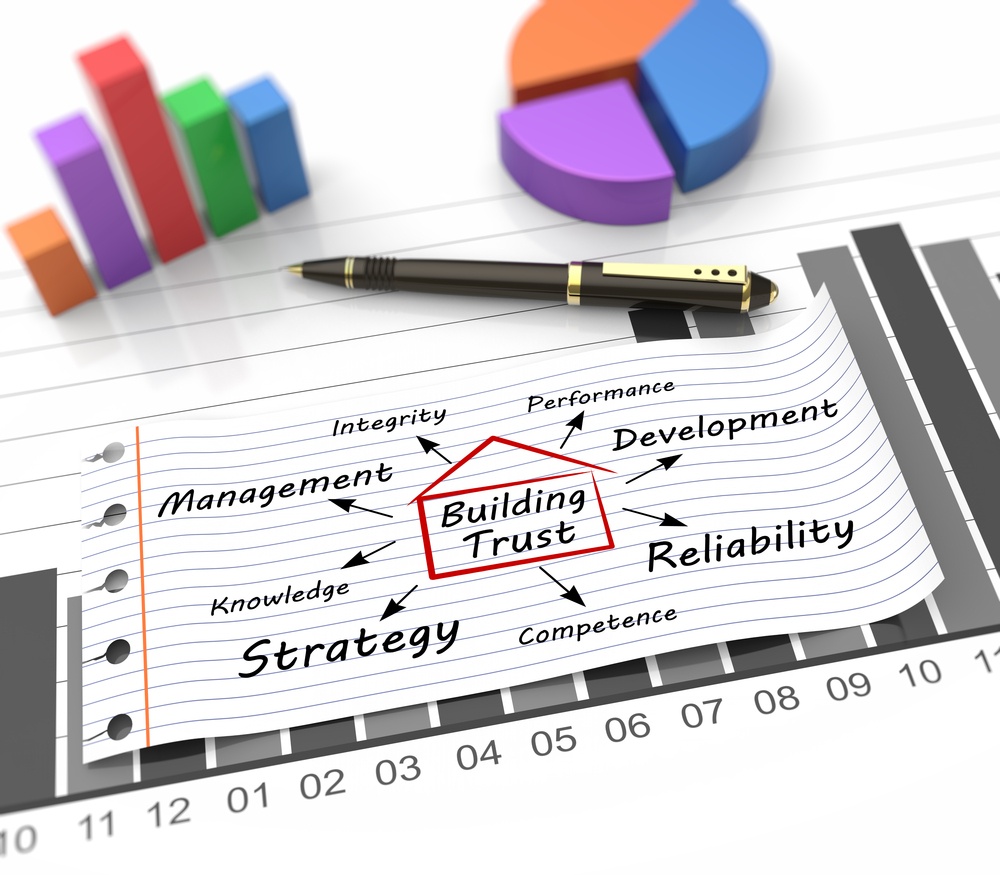During the recent economic challenges, trust took a battering in the corporate world. Even when the market rebounded, trust levels have not necessarily regained their previous level.
One might even say the levels of trust between employee and employer are in crisis, with a poll by Maritz indicating that only seven percent of employees strongly trust their senior leaders to look out for their best interests.

Why trust is so important to success
When people distrust their leaders and colleagues, morale plummets and productivity stalls. Furthermore, when employees don’t trust, they don’t take risks- and with that, creativity and innovation also go out the window.
A team without trust is effectively hamstrung, losing the power of teamwork and instead breaking up into a loose collection of uninspired individuals. Often a lack of trust will result in high turnover, or perhaps even worse: a ‘quit but don’t leave’ mentality which drags everyone down.
In order for businesses to thrive, employees need to trust again. And this is not just about employee satisfaction and reducing turnover: It’s been proven that when trust levels rise, so do profits.
How to build trust in your team
One well-respected strategy for building trust in leadership is the ABCD model from Trustworks.
Able: Demonstrate Competence
Believable: Act with Integrity
Connected: Care about Others
Dependable: Maintain Reliability

Consider building trust by:
-Bringing the team in on hiring decisions.
-Telling the truth. Even if it’s not good news.
-Treating mistakes as opportunities to learn. This one’s crucial, as it encourages employees to continue trying without fear of retribution.
-Praising regularly. Rewarding regularly.
-Keeping your word. Always see through your promises, and if you say you’re going to do something, do it. Even if it’s small-like signing off on a project that day, then do it. Small things add up fast.
-Showing trust to earn trust. You can’t expect others to trust you if you don’t trust them. Perhaps it’s stopping micro-managing people, or relaxing some restrictions on social media use.
-Asking for your team’s opinions. Show that you value their input.
-Be clear about your competency and experience. Without boasting, it’s important for the team to understand WHY you are the leader.
-Being available and asking for feedback. If you show genuine concern for people’s job satisfaction and performance, they will respond by trusting you.
-Avoiding punishing everyone for the actions of the few. This decimates trust and engagement. Don’t remove all privileges just because one or two people abused it.
-Sharing information with your team to create a bond of trust- even slightly sensitive information.

-Showing vulnerability. Admit mistakes. Ask for help. Be yourself. We’ve written a whole article about this here.
-Not choosing favourites. Treating certain members more favourably is kryptonite to the trust dynamic in your team. It’s normal to be drawn more to certain people or to really value your star performers, but make sure you’re treating everyone fairly.
-Not being a hypocrite! Lead by example. If you’re frustrated with social media use, don’t be caught using it yourself in work hours. Annoyed by lateness? Don’t be late! Leaders often fall into the trap of creating one set of rules for others, and a different one for themselves. This is one of the most destructive behaviours a leader can exhibit when it comes to trust.
How to build trust between colleagues
Trust-building starts with you and the example you set, but you also need to build trust between colleagues.
-If you’re dealing with a trust issue in your team or organisation, remove divisive individual based incentive schemes where possible as any strong rivalries can further damage trust. Friendly competition is fine. Look for opportunities to have team incentives and find ways you can reward everyone for their contribution and celebrate together.
-Step in to discourage cliques. It feels fabulous be part of a close group at work, but we also know it feels anything but fabulous to be left out of a group at work. Be mindful of where alliances and rifts are forming and step in to discourage cliquey behaviour if you see it becoming a problem.
-Make sure you’re introducing new members to the team properly and that everyone is getting to know each other. This is particularly important with virtual teams.

How long should trust-building take?
Remember that people trust in different ways. Some are quick to trust, others take longer. Some naturally extend trust and others expect trust to be earned. Some might see your new effusive praise style as a reason to trust you, others might be wary and feel that because you give so much praise you might not actually mean it. Don’t be discouraged if your efforts to build trust don’t get immediate dramatic results, trust is a fragile and very individual thing and you may need to tweak your style to build trust with individuals in your team in different ways.
Ultimately, it’s your choice. You can have a team of distrustful clock-watchers doing the bare minimum in exchange for a pay check, or you can put yourself forward as a leader who cares about their team and can truly be trusted.
Until next time,
Julia









